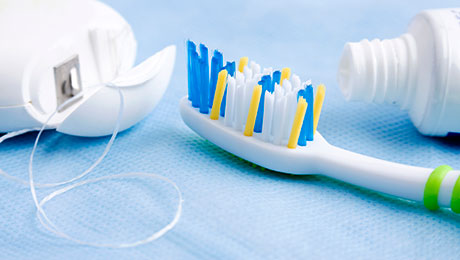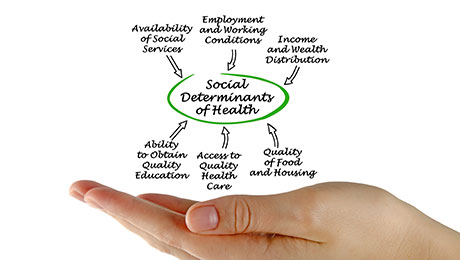1. Oral health is more than just a nice smile.

Oral health is being able to smile, speak, chew, swallow, touch and express feelings and emotions without pain, discomfort and disease. It gives you the confidence to live, work and play. Oral health is important for well-being and quality of life.
2. Your mouth is a mirror of your body.

Your mouth can tell you a lot about the health of your body. The mouth shows signs of tooth decay, gum disease and other oral health problems. It can also show signs of other disease, if you’re missing certain foods from your diet and unhealthy habits such as using tobacco and tobacco-like products, and alcohol.
3. Oral health and general health are connected.

Oral health and general health have a two-way relationship. Oral diseases can cause poor general health. And poor general health can lead to oral health problems. For example, diabetes increases the risk of gum disease and gum disease can make diabetes harder to manage.
4. Oral diseases are chronic diseases.

Tooth decay, gum disease and oral cancer are chronic oral diseases. A chronic disease is a health condition that lasts a long time and can affect people of all ages. Most chronic diseases can be prevented, but they are still the leading cause of poor health, including poor oral health. Eating healthy food, brushing with fluoride toothpaste, drinking water with fluoride, and regular visits to your dentist and dental hygienist helps to prevent oral disease.
5. Chronic diseases share common risk factors.

Risk factors for oral diseases include poor oral hygiene, an unhealthy diet, using tobacco and tobacco-like products and drinking too much alcohol. These risk factors and others, like not getting enough physical activity, raise the risk of heart disease, cancer, chronic respiratory diseases and diabetes. Knowing the risk factors for chronic diseases can help you to prevent them.
6. Healthy eating prevents chronic disease.

Healthy eating is an important way to prevent tooth decay, gum disease, oral cancer and other oral health problems. Healthy eating includes eating more fruits and vegetables and limiting food and drinks with added sugar. It also helps prevent other chronic diseases including obesity, heart disease, cancer and diabetes. Eating different types of healthy foods gives your body the nutrients it needs.
7. Tobacco and tobacco-like products are major risk factors for chronic disease.

Tobacco and tobacco-like products cause tooth decay, gum disease and oral cancer. They also cause other chronic diseases including heart disease, respiratory disease, and other types of cancer. Avoiding tobacco and tobacco-like products and enjoying smoke-free environments protects your health.
8. Less alcohol lowers the risk for chronic disease.

Drinking less alcohol lowers the risk of gum disease and oral cancer. Both alcohol and tobacco increase the risk for diseases of the mouth. When alcohol and tobacco are used together, the risk becomes even higher. Alcohol is also a risk factor for many cancers including liver, colorectal, and breast cancer. Limiting alcohol is important for your health.
9. Mouth care is important for good health.

Taking good care of your teeth and gums each day is an important way to prevent tooth decay and gum disease. And finding and treating dental problems early leads to better oral health. Good oral health lowers the risks linked to diabetes, heart disease, cancer and chronic respiratory diseases.
10. There’s more to health than healthy behaviours.

Besides health behaviours such as what foods we choose to eat and whether we get enough exercise, there are other factors that play a role in our health. These include income, education, housing, employment and community. For example, getting an education makes it easier to find a job and afford healthy foods and dental care. These factors are called social determinants of health. To improve the health of people and communities we have to look at new and better ways to deal with the factors that impact our health.
